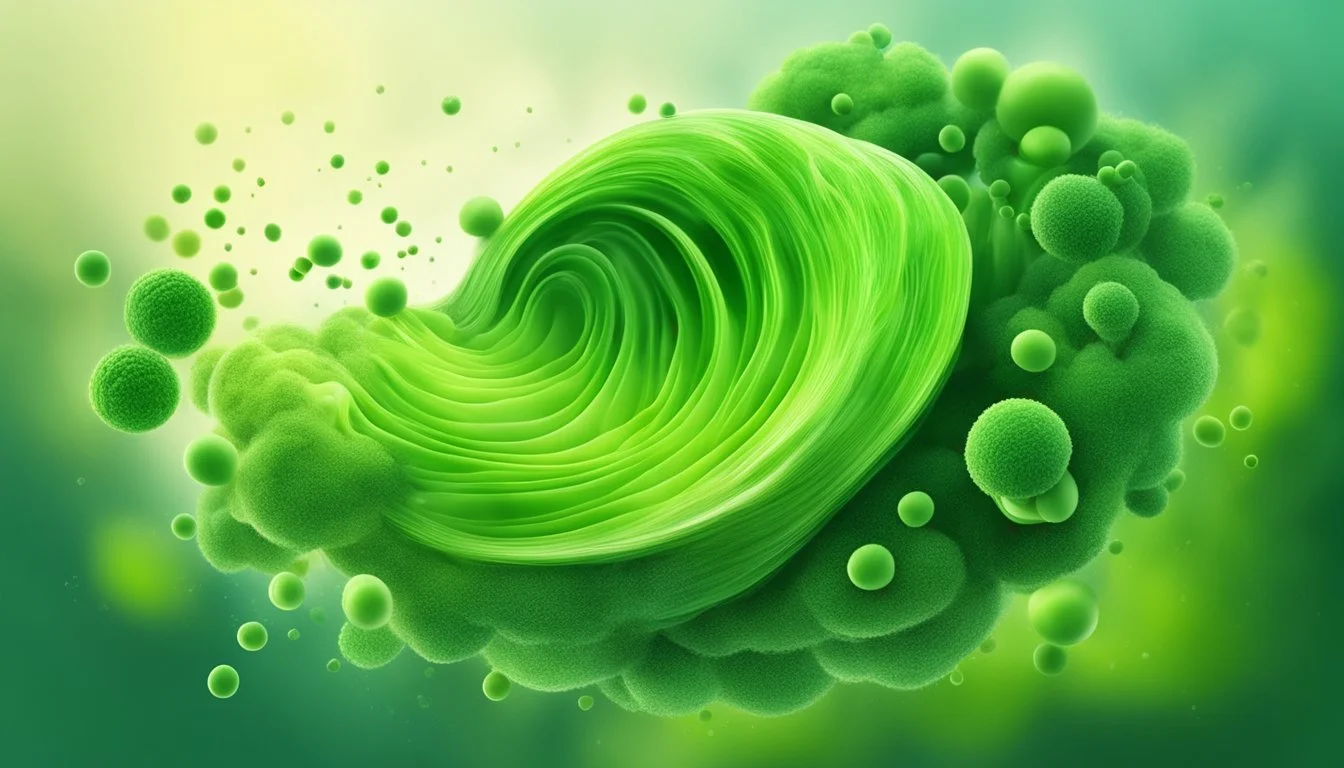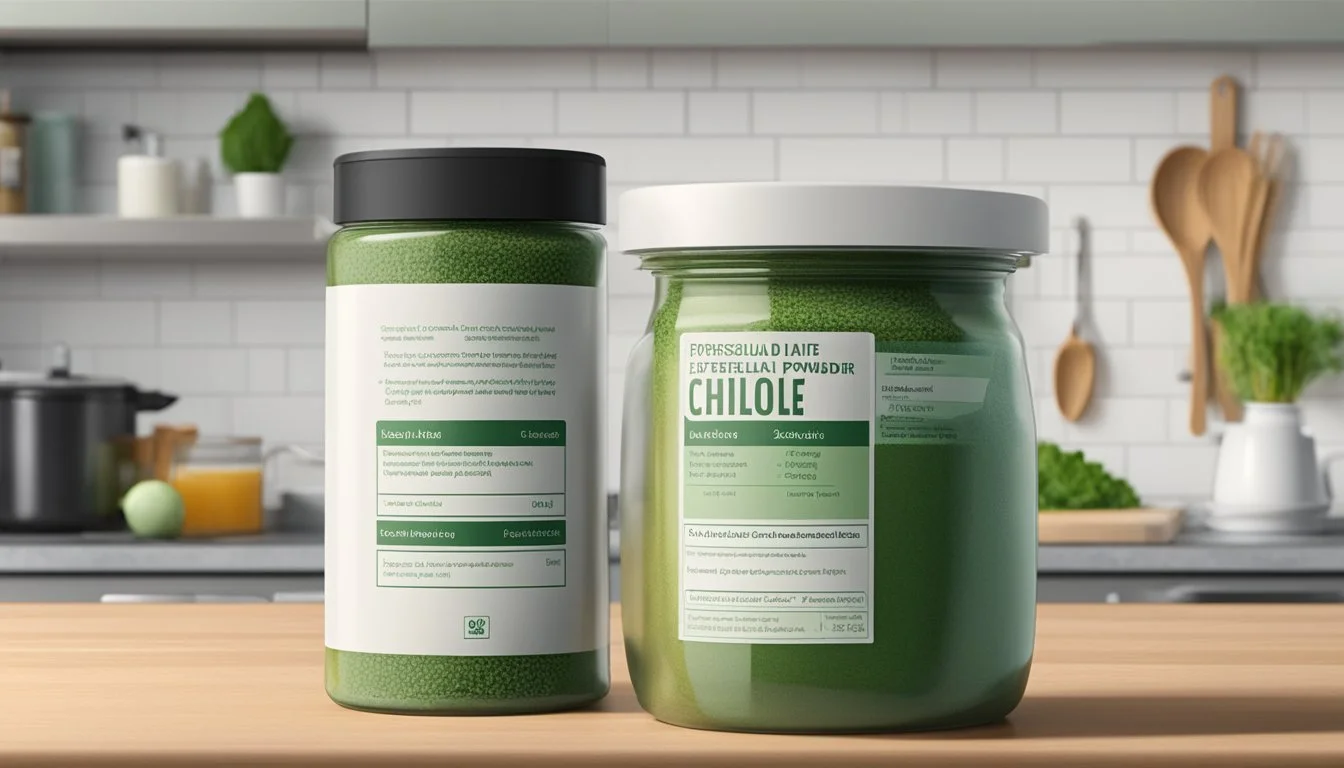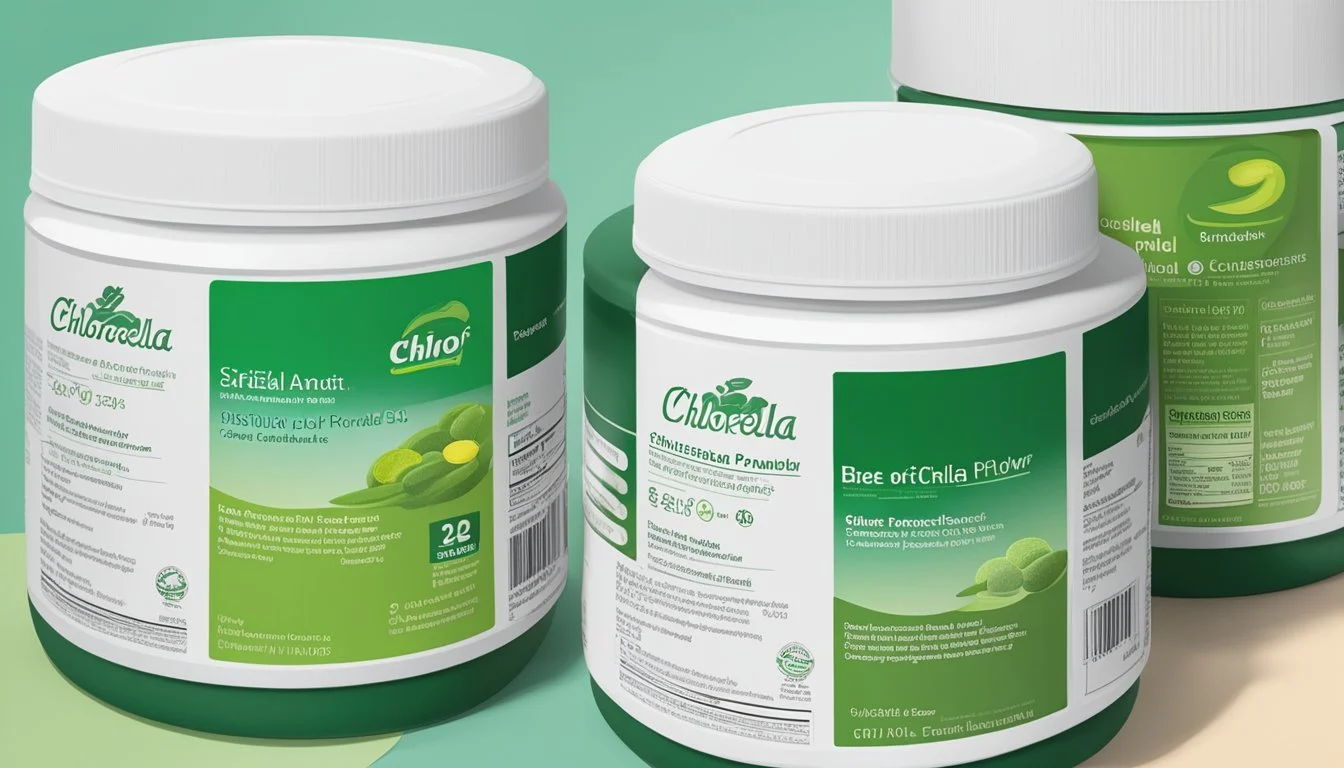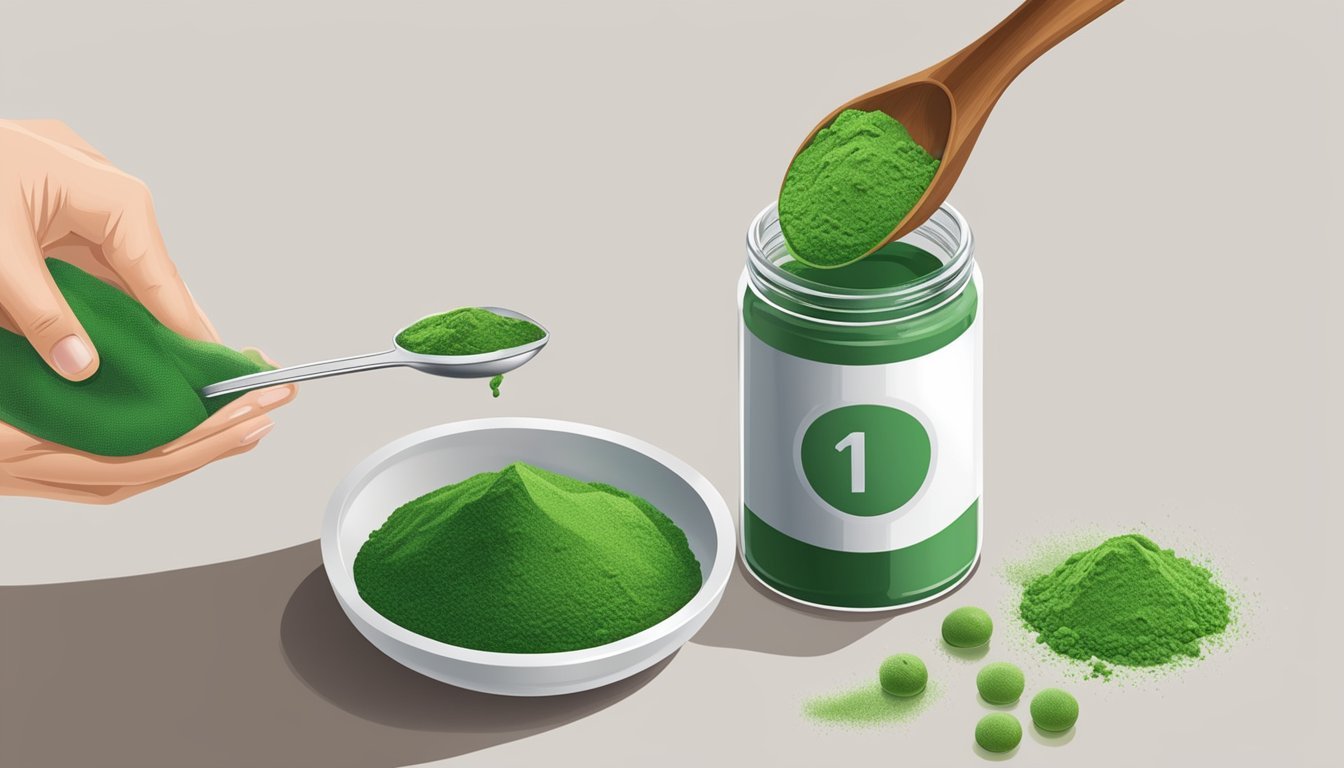How Long Does Chlorella Powder Last?
Shelf Life and Storage Tips
Chlorella powder, a dietary supplement valued for its nutritional benefits, has a notably long shelf life when stored properly. The longevity of this microalgae-derived product is impressive, with reports indicating that high-quality, properly packaged chlorella powder can remain stable and effective for up to a decade, and sometimes even over 20 years. Key factors contributing to its extended viability include the methods used in drying and packaging, as well as protection from sunlight which can degrade the product.
Consumers often question the expiration date of supplements like chlorella to ensure they reap the full health benefits. Chlorella powder's stability is due to the absence of moisture and the presence of natural preservatives within its composition. To maximize the shelf life of chlorella powder, it should be kept in an airtight container, stored in a cool and dry place, and away from direct light which can accelerate the deterioration process. By adhering to these storage guidelines, individuals can confidently maintain chlorella as part of their dietary regime for an extended period.
Understanding Chlorella
Chlorella is a single-celled, freshwater algae renowned for its nutritional value and classified as a superfood. It contains a wealth of nutrients including proteins, a variety of vitamins, such as Vitamin A, Vitamin C, Vitamin K, and B vitamins, and essential minerals like iron, calcium, potassium, iodine, and magnesium.
The high concentration of chlorophyll in chlorella gives it a distinct green color and is associated with numerous health benefits. Chlorella is also a rich source of antioxidants and all nine essential amino acids, which are the building blocks of protein. Moreover, the organism boasts omega-3 fatty acids and fiber, further enhancing its value as a dietary supplement.
Nutrition Profile
Nutrient Benefit Protein Supports muscle growth and repair Fiber Aids in digestion Omega-3s Contributes to heart health Antioxidants Protects cells from oxidative stress Chlorophyll Promotes detoxification
Chlorella's nutritional composition makes it a potent supplement for enhancing overall health. It is particularly valued for its detoxifying properties and ability to support the immune system. Its inclusion in the diet can also contribute to improved energy levels and metabolic function. However, it should be consumed in appropriate quantities to avoid any potential side effects. Due to its dense makeup of vitamins and minerals, it's often used to complement a balanced diet.
Chlorella Forms and Variants
Chlorella is available in multiple forms to cater to various preferences and uses. Tablets and capsules are convenient options for those seeking ease of dosage and portability. These solid forms typically involve pressing chlorella powder into small, consumable units, often without the need for additives or preservatives.
Powdered chlorella offers a versatile alternative, allowing individuals to integrate it easily into smoothies, shakes, or foods. Its powdered nature can lead to a more rapid degradation if not stored properly; however, it provides an adjustable dosing option.
For those who prefer liquid consumption, chlorella extracts and liquids are available, sometimes combined with other complementary nutrients. They are often marketed for their potential ease of digestion and rapid absorption by the body.
Chlorella as a product originates from freshwater algae and is categorized under green algae. It contains a high concentration of chlorophyll, which is a green pigment found in plants and algae that is crucial for photosynthesis. It's important to note that the different forms of chlorella may have varying shelf lives and storage requirements, which can impact their longevity and efficacy.
Form Description Considerations Tablet Pressed chlorella powder Easy to carry, measured dosage Capsule Powder encased in a soluble container Convenient, tasteless Powder Loose powder Flexible use, can degrade faster Liquid Extract or mixed in a liquid base Quick absorption Extract Concentrated form of chlorella Potency, possibly combined nutrients
Above all, proper storage away from direct sunlight and in a cool, dry place is essential to maintain the integrity and longevity of chlorella products.
Health Benefits of Chlorella
Chlorella, a green unicellular algae, emerges as a potent superfood loaded with diverse health benefits ranging from supporting nutrition to potentially aiding specific health conditions.
Nutritional Value and Support
Chlorella is a rich source of proteins, vitamins (including B12 and D), minerals, and antioxidants. It boasts a high concentration of chlorophyll and other essential nutrients that are fundamental for maintaining a robust immune system.
Specific Health Conditions
Consumption of chlorella may have a favorable impact on conditions such as asthma, fibromyalgia, and high blood pressure. While its efficacy against these conditions is still under study, some individuals report symptom relief upon regular intake.
Detoxification and Antioxidant Effects
Chlorella is recognized for its detoxifying properties, especially in the elimination of heavy metals and other toxins from the body. The presence of antioxidants helps combat oxidative stress and clear free radicals.
Skin and Aging
The antioxidants in chlorella can support skin health, potentially alleviating damage caused by UV radiation and sunburn. Its nutritional profile may also have a positive effect on slowing the visible signs of aging.
Digestive Health
Rich in fiber, chlorella aids digestion and may help alleviate digestive issues such as gas, nausea, and diarrhea. Its beneficial effects are attributed to the promotion of a healthy gut environment.
Pregnancy and Breastfeeding
Chlorella contains vital nutrients important for both pregnancy and breastfeeding. However, due to possible detox effects, it's crucial for expecting and nursing mothers to consult healthcare providers before supplementation.
Mental and Physical Energy
This algae is associated with increased energy levels, both mentally and physically, attributed to its dense nutritional profile and the presence of essential fatty acids.
Heart and Blood Health
Chlorella's potential benefits for heart health lie in its ability to regulate cholesterol, blood sugar, and triglyceride levels, which are important factors in preventing heart disease and supporting overall cardiovascular health.
Women's Health
Women may find chlorella beneficial particularly in managing PMS symptoms and improving iron levels to combat anemia. Its role in women's health, especially concerning hormonal balance, is increasingly acknowledged.
Safety and Side Effects
When considering the incorporation of chlorella powder into a diet, understanding the safety and potential side effects is crucial. These can range from mild gastrointestinal symptoms to interactions with medications and the presence of contaminants.
General Adverse Reactions
Most individuals tolerate chlorella well; however, some may experience side effects such as nausea, diarrhea, and gas. It is common for green stools to occur due to the chlorophyll content. Though rarely, more severe reactions like allergic reactions and anaphylaxis can happen, and one should seek immediate medical attention in such cases.
Interactions with Medications
Chlorella may interact with medications, potentially affecting their effectiveness. Particularly, blood thinners such as warfarin can be affected, as chlorella contains Vitamin K, which is involved in blood clotting. It is essential to consult with a doctor or healthcare provider before combining chlorella with any medication.
Heavy Metals and Contaminants
While chlorella is generally safe, it can be contaminated with heavy metals such as lead if grown in polluted waters. The FDA monitors these safety standards, but it’s advised to purchase chlorella from reputable sources that ensure low levels of contaminants.
Dosage and Overconsumption
Adhering to the recommended dose is important for avoiding overconsumption. High doses can lead to more severe side effects and are best determined with the assistance of a healthcare provider. There is no established universal dose, so following product guidelines or a doctor's recommendation is the best practice to ensure safety.
Chlorella vs. Similar Supplements
In the realm of green superfoods, chlorella and spirulina are often compared due to their high nutrient content. Each has distinct characteristics contributing to their status as superfoods.
Chlorella vs. Spirulina
Chlorella is a freshwater algae, whereas spirulina originates from saltwater environments. Both are highly regarded for their protein content and array of nutrients, but there are some differences:
Protein: Spirulina contains about 60% protein by weight, which is slightly higher than chlorella.
Nutrient profile: Chlorella is rich in chlorophyll and offers a different nutrient mix, often including higher levels of iron and vitamin B12.
Detoxification: Chlorella has a unique component called chlorella growth factor, and it's reported to bind to heavy metals, assisting in detoxification.
Supplement Type of Algae Protein Content Key Nutrients Detox Properties Chlorella Freshwater High Chlorophyll, Iron, Vitamin B12 Heavy metal binding Spirulina Saltwater Higher GLA, Antioxidants Less emphasis on detox
Comparison with Other Green Superfoods
When comparing chlorella to other green supplements, one must consider factors such as origin, nutrient density, and targeted health benefits.
Origin: Most green superfoods, like chlorella, originate from various types of algae or seaweed.
Nutrient Density: The term 'superfood' implies a high nutrient density. Chlorella is particularly dense in nutrients, vying with superfoods like kale and broccoli on a per gram basis.
Targeted Benefits: Each superfood provides a unique range of benefits; chlorella is often chosen for its purported detoxifying properties and its nutrient profile, which includes a wide array of vitamins and minerals.
It is important for consumers to evaluate the specific needs that they are looking to address with supplements and choose accordingly, considering factors like protein content, presence of certain nutrients, and potential health benefits.
Storage and Shelf Life
Chlorella powder, derived from freshwater algae, is known for its long shelf life when stored properly. The Food and Drug Administration (FDA) mandates a maximum expiration date of three years for packaged food products, including chlorella. Nevertheless, the actual shelf life of chlorella powder can extend much longer, potentially up to 10 years, if it is spray-dried correctly and hermetically sealed to prevent the ingress of oxygen and moisture.
Proper Storage Conditions:
Temperature: Store chlorella powder in a cool, dry place. If the package is opened and used over a longer period, refrigeration may help to better preserve its potency.
Moisture: Ensure that the powder remains in an airtight container to protect it from humidity.
Light: Exposure to light can degrade chlorella’s quality, hence it should be kept in a dark environment.
Oxygen: Limit exposure to air by keeping the powder in containers with minimal headspace or using vacuum-sealed packaging.
Best Practices for Shelf Life Optimization:
Initial Quality: Purchase from reputable suppliers to ensure a high-quality product that has been processed and packaged to maximize shelf life.
Packaging: Once opened, transfer the powder to an airtight container, if not already provided.
Usage: Frequent opening of containers can introduce humidity and oxygen, so portioning chlorella into smaller quantities can be beneficial.
By adhering to these guidelines, consumers can effectively preserve the nutritional integrity and functional benefits of chlorella powder, while enjoying its benefits over an extended period.
Preparation and Usage Tips
When adding chlorella to one's diet, it is essential to consider the form—tablet, powder, or capsule—and the method of preparation that best preserves its nutrients, including chlorophyll.
Incorporating Chlorella in Diet
Chlorella comes in various forms, tablets, powder, and capsules, each suitable for different dietary preferences. For flexibility, powder can be easily added to smoothies, mixed into milk, or sprinkled over meals to maintain its nutrient content. On the other hand, tablets and capsules offer a convenient, no-prep alternative for those on the go.
Smoothies: Blend 1-2 teaspoons of chlorella powder for a nutrient-dense addition.
Milk: Stir into your choice of milk for a chlorophyll-rich drink.
Direct Ingestion: Swallow tablets/capsules with water as directed.
Optimizing Absorption and Effectiveness
Chlorella's cell wall, which holds its rich nutrients, must be broken down for better absorption. Consumers should look for "broken cell wall" chlorella to maximize access to these nutrients. Here are optimal usage tips:
Take chlorella 30 minutes before meals to boost digestion and nutrient absorption.
Distribute the intake throughout the day, whether in tablet, powder, or capsule form, to maintain a steady influx of nutrients.
Using these preparation and usage tips should help individuals effectively integrate chlorella into their diet, ensuring they reap the benefits of this versatile superfood.
Understanding Labels and Certifications
When assessing the shelf life of chlorella powder, consumers should pay close attention to labels and certifications, as these provide information on the product's quality and durability. Food and Drug Administration (FDA) guidelines do not mandate expiration dates on dietary supplements, but they do require Good Manufacturing Practices (GMPs), ensuring the identity, purity, strength, and composition of these products.
Chlorella powders often come with a "Best By" or "Use By" date, which indicates the timeframe the product is expected to retain its potency. Manufacturers, such as those from Japan and Taiwan, renowned for their high-quality chlorella, follow stringent quality controls and may provide additional certifications on their labels:
Japan: Look for the Japan Health and Nutrition Food Association (JHFA) label, which confirms the product meets specific health and safety standards.
Taiwan: High-quality producers may include certifications like Taiwan Chlorella Manufacturing Company's (TCMC) seal, signifying adherence to rigorous production standards.
Country Certification Indication Japan JHFA Label Health and safety standards met Taiwan TCMC Seal Adherence to rigorous standards
Consumers are advised to store chlorella in a cool, dry place away from sunlight to maintain its efficacy beyond the "Best By" date. Proper storage can significantly extend chlorella's shelf life, sometimes even for two decades as reported by some Taiwanese producers. It's essential to verify if the product has third-party testing for contaminants and that it complies with the required standards for dietary supplements in their region.









